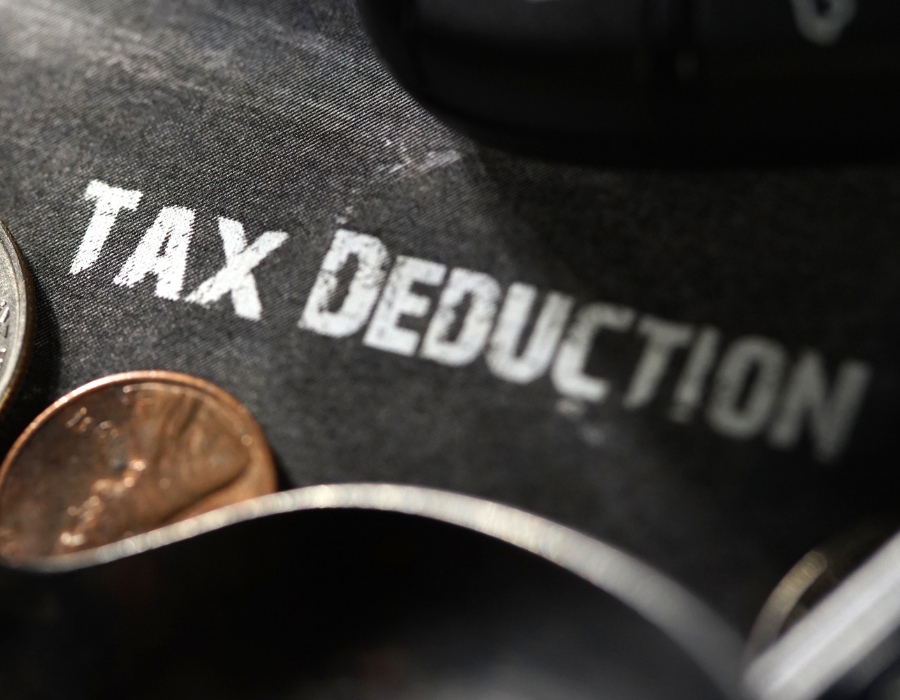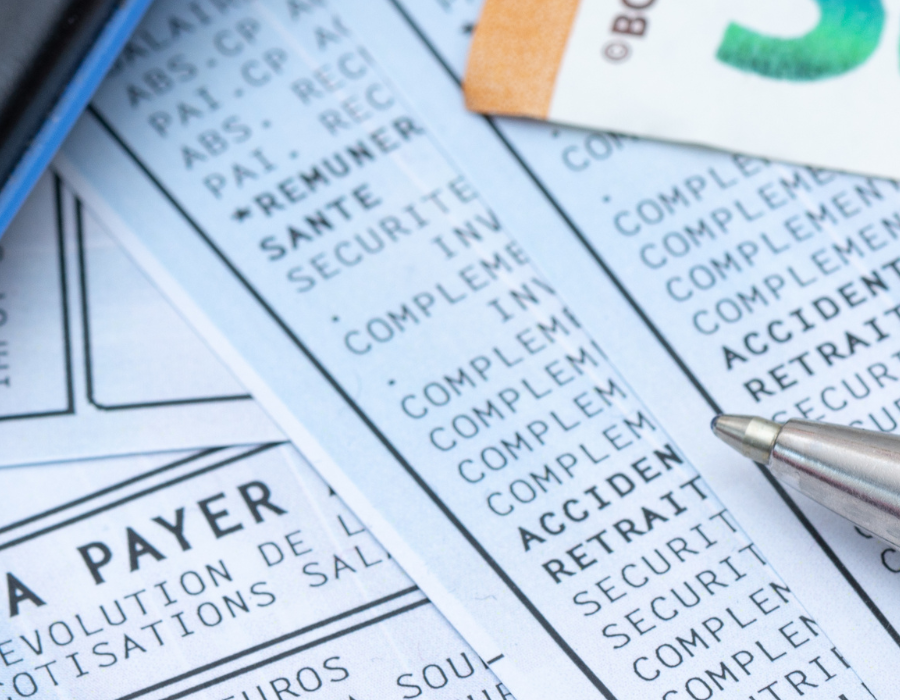Running a business is always challenging. Between inventory, paperwork, and taxes, having your own business can sometimes feel like an uphill battle. But don’t let the confusion of filing tax returns get you down, small business owners can take advantage of plenty of deductions to lighten their tax burden come 30 June.
Indeed, we all welcome any tax deduction and always look for ways to reduce our taxes, whether as an individual or as an operator of a small business.
In this blog post, let’s go through some popular tax deductions for small businesses and hopefully make the next small business tax return easier at tax time!

A business tax deduction is an adjustment to the business income that reduces the business net profit, hence how much business tax is owed.
It is normally business expenses directly or indirectly related to running the business and/or generating income.
The Australian Taxation Office (ATO) uses the following formula to calculate the business taxable income: Taxable income = assessable income minus tax deductions. The majority of the money made from running the business is assessable income while on the other hand, tax deductions can take various forms.
1. Asset Write-Off
The government currently has Temporary Full Expensing provisions, allowing small businesses to –
- Deduct the business portion of an eligible new or second-hand depreciating asset in full if the asset is bought and used for the business purpose between 6 October 2020 and 30 June 2023.
- Claim full tax deduction on improvements made to depreciating business assets, even if the asset was originally bought before 6 October 2020
- Write off the balance of the undepreciated value of business assets in the business’ small business tax depreciation pool for the financial year 2022/23
2. Business-Related Travel Expenses
If you’re a small business owner, you can claim tax deductions for business travel expenses when you or your employees travel for business purposes. Airfares, train, tram, bus, or taxi fares are all tax deductible. For overnight business travel, you may also claim costs involved in hotel accommodation and meal expenses.
3. Operating Expenses
Running expenses incurred in business operations may be claimed as tax deductions in the same income year they are incurred. According to the Australian tax office, some common running costs for tax purposes are:
- Trading stock purchases, including delivery expenses
- Costs of advertising and sponsorship
- Business meals consumed on the business premises
- Public relations expenses
- Legal fees, such as those incurred in protecting future earnings, borrowing money, paying off a mortgage, or seeking tax guidance
- Tender costs, even if the tender is unsuccessful
- Bad debts
- Bank fees and charges
- Insurance costs, including accident or disability, fire, burglary, professional indemnity, public risk, motor vehicle, income protection, or workers compensation
- Interest on business loans and overdrafts
- Expenses related to producing assessable income or purchasing income-producing assets
- Professional fees on income tax obligations
- Employer super contributions
- Motor vehicle expenses related to or used for business purposes
- Stationery expenses
- Costs for running a commercial website, such as site maintenance, content updates, and internet service provider fees
- Subscription fees for off-the-shelf software
- Transport and freight expenses
- Waste removal and recycling expenses
- Parking fees (but not parking fines)
- Small-value items costing $100 or less (incl. GST).
Note that If you claim business tax deductions in the tax return, tax invoices and receipts must be kept to prove the deductions. According to tax law, you’d also need to keep record that is: written, either on paper or electronically, in English, and include a description of every transaction.
4. Office Supplies & Furniture Deductions
It’s easy to write off things like pens and papers, but there are many ways to deduct other office equipment depending on your business’ situation. Keep your receipts safely stored away at all times!
You may claim depreciation deductions on most types of assets as long as they are used for your business purposes. Following are some examples:
- Computers and their programmes
- Filing cabinets and bookcases are examples of office furniture.
- Power tools, like grinders, sanders, and hammer drills, or hand tools, like spanners, hammers, and screwdrivers.
- Safety items, like hard hats, safety glasses, sunglasses, sunscreen, and makeup with sun protection
- Professional libraries
- Tools and equipment
You can also claim the cost of fixing or insuring your tools and equipment and any interest you paid on money borrowed to buy them.
On the ATO website, you can learn more about how to claim small business tax deductions for equipment.

5. Bank Fees and Interest Costs
If you have a business credit card or a small business loan, any interest charged during the year is tax deductible . The same applies for any bank charges on the business bank accounts.
6. Capital Gains Tax Reductions
As a small business with a turnover of less than $2 million, you may be eligible for various CGT concessions on the sale of “active business assets”, both tangible and intangible, under the tax act.
Capital gains tax is a complex area involving different eligibility criteria for different categories of small business CGT concessions. It’s best to consult with your registered tax agent for more details if a business sale is taking place in the year.
7. Bad debt Write-Off
Bad debt is unrecoverable income on credit sales to customers or debtors.
The small business owner would need to determine the debt is bad beyond reasonable doubt after making reasonable commercial attempts. Evidence of communications with the debtors seeking payment and record of phone and email reminder notices could serve as good evidence of commercial attempts.
Once a business decides to write off a legitimate bad debt, it can be claimed as a business expense in the tax return.
8. Electric cars Fringe Benefit Tax exemption
From July 1, 2022, small business entities do not need to pay Fringe Benefit Tax for providing private use of a non-luxury electric car to the employees or their family members.
This creates a great tax-efficient salary packaging opportunity for small businesses to gain competitiveness in the job market and attract talents in today’s labour shortage environment.
Suppose the owner of the small business also takes a salary for him or herself, this might be a perfect tax-freebie to upgrade to a trendy electric car for the family, have everything paid by the business, and enjoy the full business tax deduction on the motor vehicle costs* without needing a logbook ever!
(* subject to Luxury car limit which is $84,916 for 2022/23)
9. Prepaid expenses
Prepayment of business related expenses can be a great way to reduce the income tax for the current financial year. By paying for business expenses like insurance premiums, mortgage interest, utility bills, or business related subscriptions before 30 June, you can increase the amount of allowable tax deductions for that year.
However, it’s important to remember that when you claim such business expenses this year, you won’t be able to claim them again next year, so they may affect your tax liability in the following financial year.
It is wise to consider how much tax benefit you will receive from prepaying these expenses compared to the negative effect on the business cash flow.
10. Obsolete Stock
Having some ageing stock? Noticing no sales achieved on any out of fashion stock since the previous income year and expecting none for the current and future years? These might be signs of obsolescence which can be claimed as a tax deduction for the value write-off.
Special care is required on how to value the obsolete stock. A professional advice may need to be sought on the application of ATO rules.
What Cannot Be Claimed as a Business Tax Deduction?
A long list of things can be claimed as a business tax deduction, but not all business expenses are deductible.
You can’t claim deductions for:
- Entertainment expenses
- Government fines and penalties
- Private or personal expenses, like childcare costs or clothes for your family
- The GST portion of the purchase if the business is registered for GST
If you need more clarification, a good way to check is to remember that the expenses you want to claim must be directly related to your business making assessable income.
Keep Track of Things
Remember that you need a valid tax invoice for any business expense that costs more than $100 (including GST) to prove it.
- Keep records of all business transactions for at least five years, including income and expenses, activity statements, and financial reports.
- Keep records for at least seven years about employees, contractors, and payroll.
- For capital gains tax assets, keep all records for the entire business ownership plus 5 more years after selling the asset.
Take note that only the business usage of the expenses can be claimed if you’re operating from your home. A tax advisor can help you identify expenses you may be eligible for. A tax accountant can also make an efficient system for keeping and recording expenses you may qualify for.
If you don’t have an accountant, keep accurate and complete records of all your income and expenses to make sure you can claim all tax deductions available to you as a small business.
Talk with a professional before pay tax
Let the expert team at Chan-Naylor help you easily navigate your small business tax return so that it is accurate and professional.
Our experienced accountants have helped countless businesses identify potential tax deductions, allowing them to make intelligent decisions on their tax optimisation.
Contact us if assistance is required.





